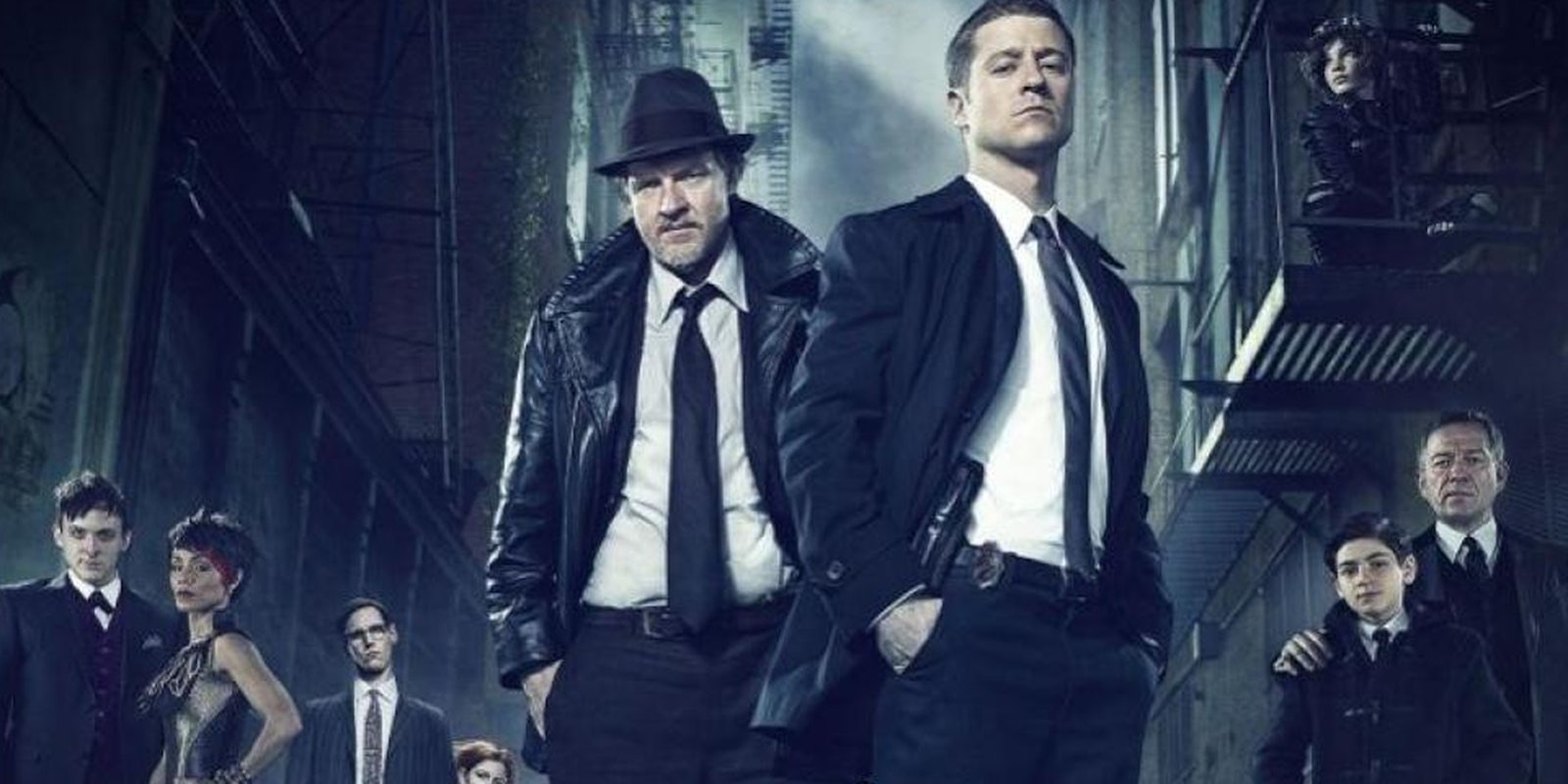The new Batman TV series Gotham is running into a problem that has plagued comic book adaptations for years: A failure to pay royalties to the original writers.
In a Facebook post, former DC comics writer Alan Brennert accused DC Entertainment of refusing his request to be paid “equity” for the character of Barbara Kean.
Barbara Kean is the first wife of James Gordon, Batman’s friend and good-cop counterpart on the Gotham police force. Before Brennert created the character Barbara Kean, Gordon’s first wife only ever appeared in a minor, nameless role in a comic in 1951.
Brennert wrote on Facebook, “My character, later picked up by talented writers like Frank Miller and Barbara Randall Kesel, was clearly the prototype (with the same first name) for the “Post-Crisis” first wife of Lt. James Gordon, and—as Barbara Kean Gordon—became a supporting player in Batman continuity, and even made two movie appearances in BATMAN BEGINS and THE DARK KNIGHT.”
Barbara Kean Gordon first appeared in Brennert’s 1981 Batman story, “To Kill a Legend.” Since then she’s appeared in various other comics by Brennert and other authors, and will have a central role as the fiance of the young James Gordon in DC/Warner Bros. Gotham.
Brennert claims that his request for royalties was denied on the grounds that Barbara Kean was “derivative” of her daughter Barbara Gordon (A.K.A. Batgirl), a preexisting DC character. However, Brennert argues that this isn’t actually a valid reason to deny all royalties for the character.
“I then pointed out to [the DC representative] that writer Mark Waid had been told by then-DC management that DC did, in fact, give equity in “derivative” characters, just a smaller percentage—and indeed Mark and artist/co-creator Mike Wieringo received equity in the “derivative” character of Bart Allen/Impulse (grandson of Barry Allen/Flash) and received payments when he was used on SMALLVILLE. I suggested DC grant a similar reduced percentage on Barbara Kean, and I was willing to limit this to her appearances on GOTHAM and forget the movies.”
He then adds that at this point, DC stopped replying to his emails.
Since the amount of royalties for a derivative character is apparently negligible in the greater scheme of things—around $45 for each usage of the character—Brennert states that this is more a matter of principle.
The comics industry has a long history of sidestepping possible obligations to writers who created characters while under contract with a major publisher like DC or Marvel.
One of the most notorious examples is artist and editor Jack Kirby, who Brennert actually references in his Facebook post. Kirby created or co-created many of Marvel’s most iconic characters, including Captain America and (alongside Stan Lee) the Hulk, the X-Men, and the Fantastic Four. These characters have now earned literally billions of dollars for Marvel, but Kirby’s estate never received a cut of the profits. This led to a protracted legal dispute between Disney/Marvel and Kirby’s estate, with most comics fans tending to sympathise with the underdog: comicbook legend Jack Kirby.
Alan Brennert’s situation is nowhere near as serious and controversial as Kirby’s, and Brennert mostly makes his living through TV and novel writing anyway. It looks like his Facebook post, which has now gone viral in the comics community, was more about drawing attention to the issue.
In an interview with the Toledo Free Press, he mentioned that one of the problems is that, unlike TV and film writing, the comics industry isn’t really unionized, meaning that writers often have to bow to the wishes of corporate juggernauts like DC/Warner Bros.
It’s easy to think of DC and Marvel characters as belonging to the more recognizable face of the publisher itself, but obviously somewhere along the line a real person did invent each and every one of these characters. While Stan Lee has become a public figure thanks to his many cameos in Marvel films, most viewers of a show like Gotham will give very little thought to who created the characters in the first place.
Whether or not DC Entertainment is obliged to pay Alan Brennert is a matter for the legal experts. But if everything he says in his Facebook post is true, then it does seem a little unfair to leave him out in the cold.
The Daily Dot reached out to DC Entertainment for comment on the issue, but there was no response as of publication time.
Photo via gothamsite


